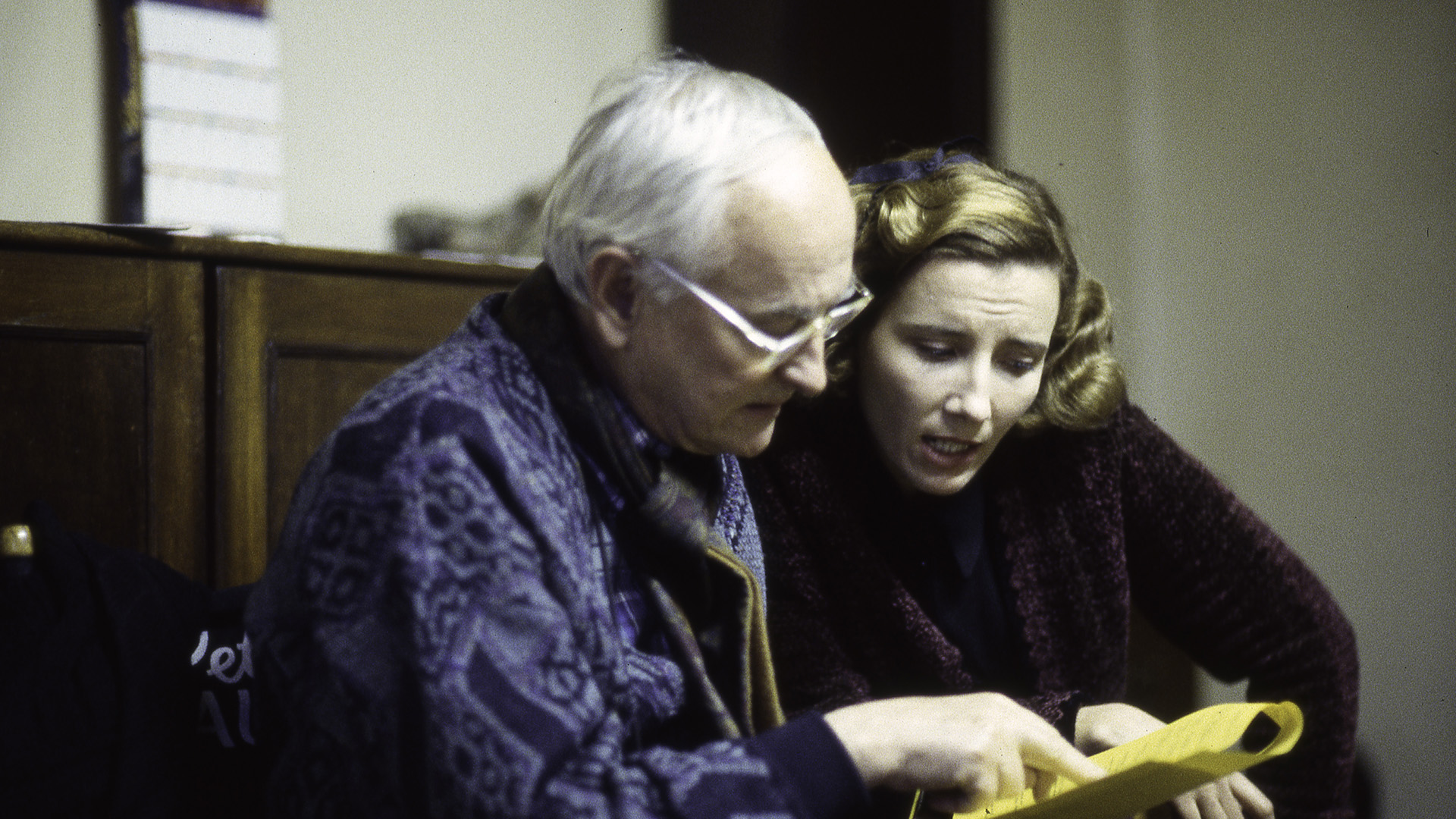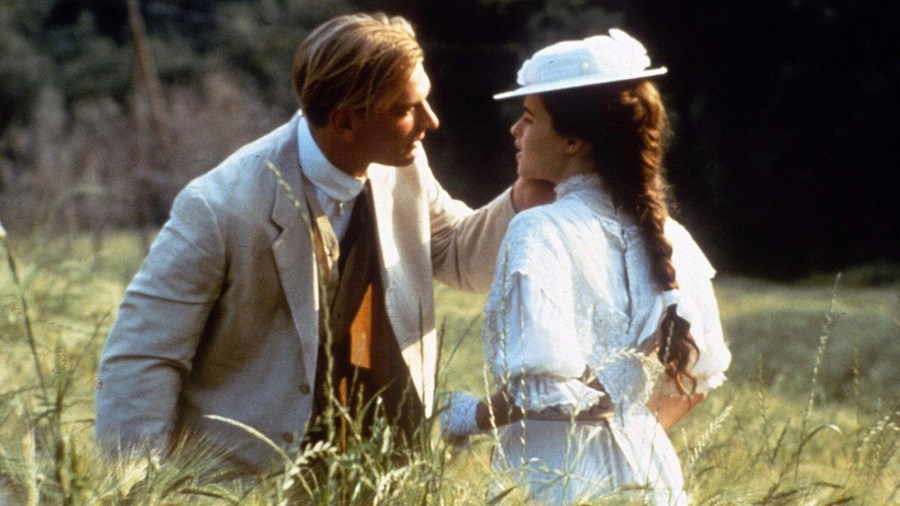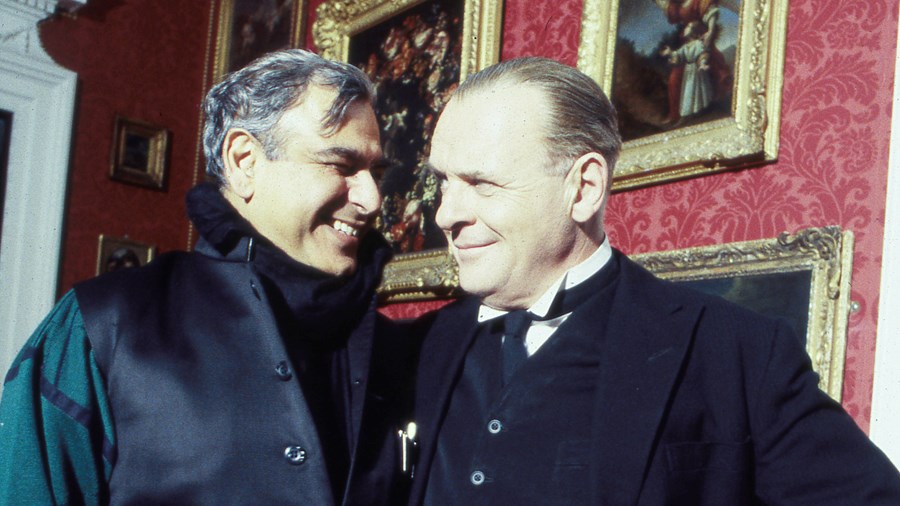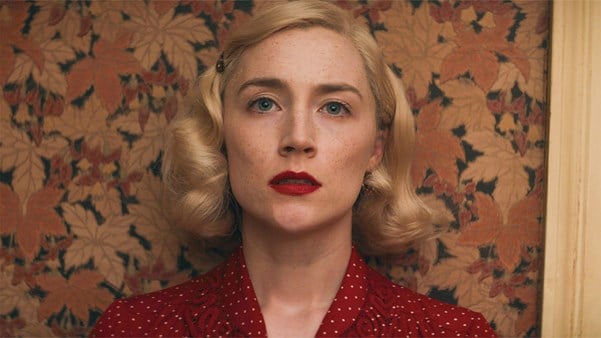As a new documentary reveals the behind-the-scenes turmoil on Merchant Ivory productions, Witches (2024) director Elizabeth Sankey posits that the duo’s deceptively low-budget British period dramas are more subversive than they may seem.

Stories about them are legion and their most acclaimed work has helped define the notion – cinematically, at least – of Britishness to international audiences. But do we know who Merchant Ivory really were? And does the impression some might have of their work – as musty, fusty portraits of the British aristocracy – fall far short of their brilliance, perhaps even missing the veiled social critique, barbed humour and anti-establishment sentiment embedded in films like A Room with a View (1985), Howards End (1992) and The Remains of the Day (1993)?

Stephen Soucy’s new documentary Merchant Ivory pulls back the heavily brocaded velvet curtain to reveal the unexpected reality of the world in which Ismail Merchant and James Ivory operated. Merchant was a brilliant film producer: erudite, intellectual, full of charm and determination. He was also a man who paid people with bundles of cash out of a plastic bag and made films on credit cards. Director Ivory, the urbane US filmmaker with a taste for British culture and literary fiction, and whose most recent success was his Oscar-winning screenplay for Call Me by Your Name (2017), laughs when Merchant is described to him as a conman (‘He was!’). Another of his creative team, screenwriter Ruth Prawer Jhabvala, said that she fully expected to be visiting him in prison one day. Soucy makes plain the disparity between what the company was like and the lustrous films they produced.
Of course, it is this paradox, along with the many clashes and contrasts populating their work, that makes the films of Merchant Ivory so fascinating. They produced adaptations of great novels that appear to celebrate tradition and upper-middle-class life, yet more often than not are condemning them. In A Room with a View, when young Lucy Honeychurch spies on three men as they pull off their clothes and splash into the river, it is presented as her sexual awakening. But a queer audience knows the truth – the far more interesting sexual tension is happening in the water.

A Room with a View (1985)
While Howards End begins with the conservative Wilcox family feeling smugly superior to the liberal, artistic Schlegels, by the end of the film it is the latter who have shown themselves to be more worthy of our respect. Where the Wilcoxes see the world in narrow, binary terms, always submitting to societal pressures and duties, the Schlegels fight to live a more progressive life. They are preoccupied by humanity, ideas and the desire to ‘only connect’. It’s a sentiment that returns in Merchant Ivory’s adaptation of Nobel Prize winner Kazuo Ishiguro’s The Remains of the Day, with the class conflict, emergence of new money, Anglo-American relations and decaying structures of the British establishment filtered through the prism of an intense, yet unconsummated, relationship between the butler and housekeeper of a country pile whose ownership has changed hands.
Unlike Merchant, James Ivory is described by his collaborators as calm and relaxed – a perfectionist, but one who stands back and trusts his co-workers to do their best. In the documentary he is composed, precise and private. He and Merchant were in a romantic relationship for over 40 years, but never told their families. Early in the film, Soucy asks Ivory about his sexuality. The filmmaker swiftly shuts him down: ‘Isn’t that kind of a different topic?’ But later, when Soucy asks him when he became comfortable with his homosexuality, Ivory says ‘I never felt uncomfortable’, and giggles, remembering that on their 1963 film The Householder, the crew all knew about their romance and called them ‘Jack and Jill’

Merchant and Anthony Hopkins on the set of The Remains of the Day
Their differences in personality notwithstanding, in the 1980s this filmmaking team emerged as a powerhouse at a time when British cinema was at a low ebb. Because of their subject matter – what some regarded as the ‘glory days’ of Britain’s past – Merchant Ivory were embraced by an establishment whose strictures their films lambasted. Nowhere more so than Maurice. Adapted from a posthumously published novel by EM Forster, it tells of a romance between two men at the beginning of the 20th century, complete with wistful longing, an immaculate Hugh Grant, stultifying repression and tweedy accents. But it was released in 1987, during the height of the Aids crisis, at a time when Margaret Thatcher was introducing Section 28 and homophobia was seen by some as a national pastime. Likewise, the arrival of Howards End following the fall of Thatcher and increasing opposition to the Conservative government’s cronyism hardly feels like a film made by supporters of the establishment.

Maurice (1987)
If the films of Merchant Ivory worked against the grain, the humour in them often derived from their makers’ position as outsiders to the system, who look on at the strange behaviour brought about by class difference or a rigid social order with a sense of detached irony. There’s the Greek chorus of Judi Dench and Maggie Smith in A Room with a View, whose occasional commentary adds a little acid to the proceedings. And in Howards End, before its narrative
takes a darker turn, the characters are also the subject of mild mockery, if not outright ridicule. Like Maurice, both these films were based on EM Forster novels. David Lean’s A Passage to India (1984) was also an adaptation of the celebrated author and made in the same era. But viewed alongside these films, it is weighed down by a fustiness that is too readily associated with Merchant
Ivory, yet never borne out by watching their work.

Howards End (1992)
There is something so poetic about the fact that the luxury of Ismail Merchant and James Ivory’s films was cobbled together on tiny budgets, with their cast and crew shouting ‘never again!’ at the end of each production, before inevitably coming back for more. Filmmaking is a world of high-wire risks, populated by dreamers full of bravado and ambition, but no chance of actually getting films made. Cinema is about craft, elegance and art, but it is also about deals made in dark bars at 4am, grubby conversations about money, sets full of tears and unwieldy emotions. And most of all, people pretending to be someone they’re not. These contrasts and conflicts became the lifeblood of Merchant Ivory films, and they leave a lasting legacy.
WATCH MERCHANT IVORY IN CINEMAS




